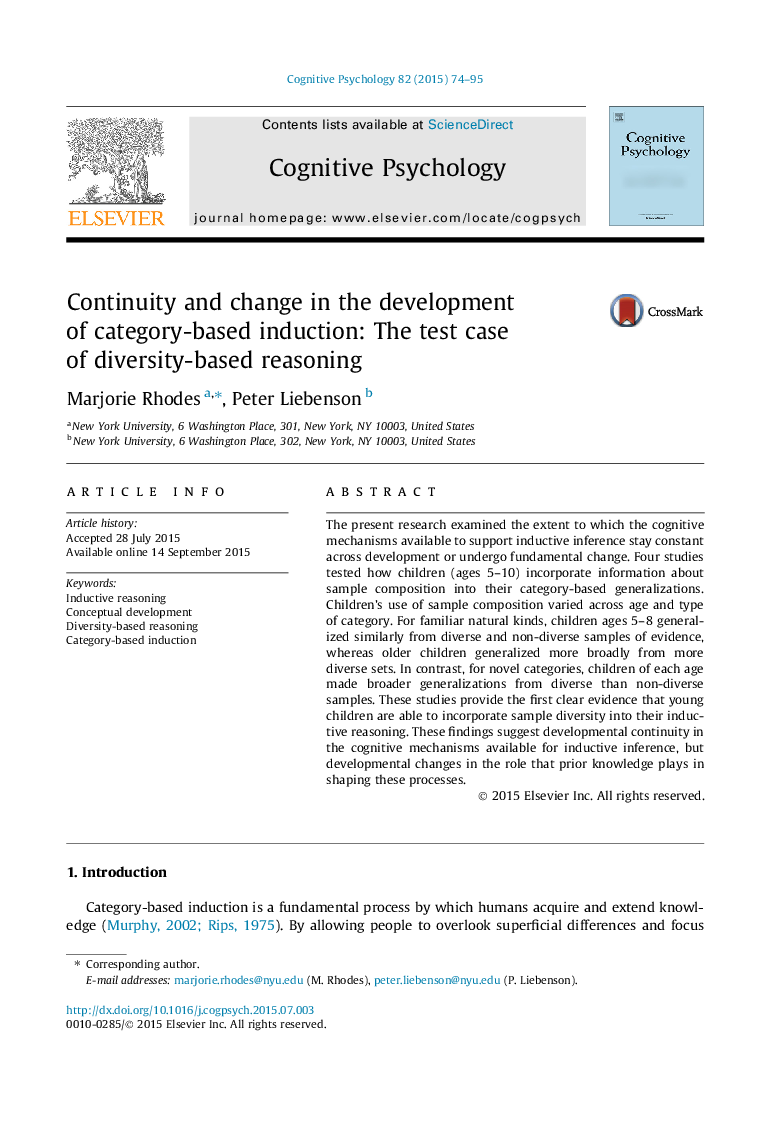| Article ID | Journal | Published Year | Pages | File Type |
|---|---|---|---|---|
| 916815 | Cognitive Psychology | 2015 | 22 Pages |
•Young children often generalize similarly from diverse and non-diverse samples.•For familiar biological kinds, this finding replicated.•For novel categories, children generalized more broadly from diverse samples.•Young children can engage in normative diversity-based reasoning by age five.•In early childhood, category knowledge can interfere with these abilities.
The present research examined the extent to which the cognitive mechanisms available to support inductive inference stay constant across development or undergo fundamental change. Four studies tested how children (ages 5–10) incorporate information about sample composition into their category-based generalizations. Children’s use of sample composition varied across age and type of category. For familiar natural kinds, children ages 5–8 generalized similarly from diverse and non-diverse samples of evidence, whereas older children generalized more broadly from more diverse sets. In contrast, for novel categories, children of each age made broader generalizations from diverse than non-diverse samples. These studies provide the first clear evidence that young children are able to incorporate sample diversity into their inductive reasoning. These findings suggest developmental continuity in the cognitive mechanisms available for inductive inference, but developmental changes in the role that prior knowledge plays in shaping these processes.
